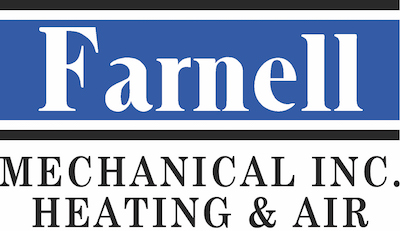
Even when temperatures are just right indoors, some homeowners find their sense of comfort isn’t whole. A common issue is poor indoor air quality, with allergens and airborne debris leading to all sorts of problems. From exacerbating asthma to fostering mold, improving air quality should be included in your overall HVAC plan.
Fortunately, there’s a solution at hand. Whole-house air purifiers can clear these airborne particles, for better health and well-being. And as the name suggests, they’re sufficiently powerful to do so for every part of your home! Air purifier installation from Farnell Mechanical, Inc. could be just what you need to iron out those frustrating comfort problems.
But wait, aren’t there portable air purifiers you can use instead? While the principle is the same Is the Better Investment
Cost is always a concern, and some people view the price tag of a portable air purifier as as the driving factor in your choice. But if your ultimate goal is maximum indoor air quality, the power of whole-house air purification becomes clear:
- One unit covers the entire house: You won’t have to drag a portable purifier around from room to room since whole-house models are powerful enough to eliminate pollutants across your entire home.
- Much more cost-effective for long-term use: Rather than having to invest in several purifiers for each area, a single, whole-house air purification system ensures high air quality for a very long time. This dependable air filtration also prevents dust and debris from reaching the rest of your HVAC system, as this could boost the efficiency of your other climate control products.
- Reduced upkeep needs due to fewer filter clogs and lower pollution levels: A clog in the air filter is one of the most common reasons you notice problems with your HVAC system’s effectiveness. A whole house air purifier can keep these filters from getting clogged in the first place with their own filter designs. For example, air purifiers with a HEPA filter give you access to superior air quality for residential properties.
For a Typical Household, Look for MERV Ratings Around 8
The Minimum Efficiency Rating Value (MERV) system was developed to help homeowners get a clearer idea of the degree of air filtration they’re considering. While a higher MERV rating means more filtration, that isn’t necessarily something your average home requires.
The scale is rated all the way to 20, but this is unnecessary outside of specialized facilities like the surgery theater in a hospital. For standard residential use, a MERV rating of 8 is usually enough. The air quality experts at Farnell Mechanical, Inc. can help you determine precisely which option will satisfy your needs.
